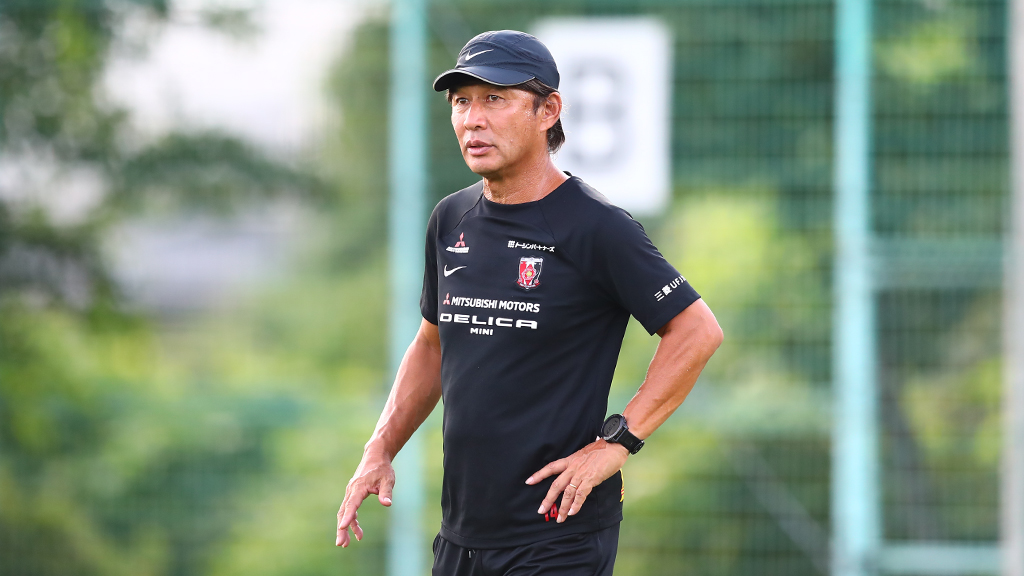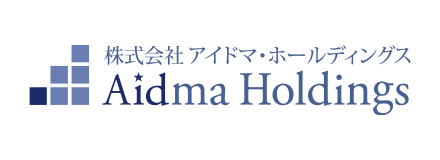NEWS
「『この人のために一生懸命闘いたい』と思わせてくれる」池田伸康コーチ(定例会見 8/30)
30日、池田伸康コーチの記者会見がオンラインで行われ、自身やチームの取り組み、9月2日(土)にアウェイのデンカビッグスワンスタジアムで行われる明治安田生命J1リーグ 第26節 アルビレックス新潟戦に向けた意気込みなどを語った。
試合前の定例会見は基本としてマチェイ スコルジャ監督がメディアの質問に答えているが、マチェイ監督が過去に率いたチームで行っていた、コーチ陣による不定期での記者会見をレッズでも新たな取り組みとして行っている。ラファル ジャナスコーチ、ヴォイテク マコウスキコーチに続いて、今回は池田コーチが記者会見に出席した。
(トレーニングを見ると池田コーチはいろいろな選手たちに声を掛けてメンタル的なケアもしているという印象を受ける。ご自身も現役時代は苦労されたと思うが、どういったことを心掛けながら選手たちに声を掛けているのか?)
「僕は選手に声を掛けるのは一つのタスクだと思っていまして、特に出場時間が短い選手、もしくは表情を見て元気がないと思ったり悩んでいるのではないかと思った選手には積極的に話し掛けています。選手は孤独なので、試合に出るために切磋琢磨している中で、出られない時間は非常に苦しい時間です。その中で少しでもコミュニケーションを取って、選手のかさぶたや苦しみを聞いて和らげてあげたいと思っています。ただ話を聞くだけではなく、チャンスをもらったときにしっかりと結果を出せるようにという願いも込めて話をしています」
(今シーズンが始まって半年余りで特に成長したと感じる選手は?)
「みんなそうだと思いますし、全体的に今年のチームの特長としましては、試合に出ている選手はもちろんピッチで表現できますが、出場時間が短い選手が下を向かずに練習からしっかりとチームのために表現していることはすごくプラス材料です。
選手個人が下を向くことはいつでもできますが、今、毎日のトレーニングの中でしっかりとトレーニングができているので、試合に出ている選手の成長もありますし、それ以外の選手も個人個人の成長にもつながっていると思います」
(例えば小泉佳穂選手も悩んだ時期がありながらここに来てようやく笑顔が見られたり、以前は下を向いているような印象だった大畑歩夢選手から試合に出るという意気込みを感じられたりするが、池田コーチもそのようなことを感じているのではないか?)
「先ほども言いましたがスポーツ選手は孤独ですし、嫌になってしまうこともあると思いますが、人からのコミュニケーションで得るものもあるでしょうし、何よりも名前が出た大畑選手にしても小泉選手にしても、自分自身で今やらなければいけないことをしっかりと整理できていると思います。小泉選手は表情によく出るので、元気がないときは話し掛けたりしますが、彼は非常に謙虚ですし、話をすると常にプラスに考えたり、常に実行しようとする能力があります。今後も非常に楽しみな選手だと思います」
(9月2日に新潟と対戦し、その後にはYBCルヴァンカップ プライムステージ 準々決勝でガンバ大阪とのホーム&アウェイの戦いが控えていて過酷なスケジュールになっているが、まず新潟戦をどんな試合にしたいと考えているか?)
「J1リーグは残り9試合ということで、今は4位につけていて負けられない試合、もちろん新潟戦も勝たなければいけない状況だということは選手もスタッフも分かっていますし、今週は休暇も取りながら準備をする時間が1週間ありますので、新潟戦に関してはさらに一体感を持って進めると思います。新潟はみなさんもご存知の通り、ボール保持率が川崎フロンターレに次いで上位にいるということで、一人ひとりの技術が高く、ボールを保持する、ゴールに向かうというところは警戒しなければいけないと思います。ただ、僕らの長所の一つでもある、みんながハードワークし、攻撃でも守備でも一体感を持って闘う、フィールドをコンパクトにして闘うことが勝利への一つの要因になると思います」
(池田コーチが明るくチームを盛り上げることが昨年からの一番の変化ではないと思うくらいだが、ご自身の性格もあることに加え、必要だと思って意識的にやっていることでもあるのか?)
「両面あると思います。みなさんご存知のように、僕は根っから明るくて、周りを明るくしてしまうことが自分の長所だと思っていますし、マチェイ スコルジャ監督のもと、タスクとしてやらなければいけないという使命感もあります。クラブの土田(尚史)スポーツダイレクターから『チームの雰囲気づくりをノブがやってくれ』ということも言われていましたので、率先してやっています。ただ、今年からですので、初めて一緒に取り組む選手も多い中で、最初は戸惑いましたが、勇気を持って選手の胸に飛び込むということは心掛けて沖縄トレーニングキャンプからやってきました。心を開いてくれる選手もいれば、話すのが苦手な選手もいますが、話すのが苦手な選手に対しても少しずつでもあいさつからでも始めて、できるだけ奥深いところまで話ができればいいなと思って毎日接しています」
(ラファル ジャナスコーチと主に攻撃を担当しているとマチェイ スコルジャ監督から聞いているが、攻撃に関しては得点数がそこまで伸びていないことが事実としてある。それは全体の立ち位置などもあれば、個々でもう少しうまくできればもっと崩せるという側面もあると思う。池田コーチが指導していて、ここを伸ばしたら劇的に変わるのではないかと感じられることはあるか?)
「僕は偉そうなことを言える立場ではありませんが、僕だけではなく、ラファコーチをはじめ、マチェイ監督とも話している中で、ファイナルサードでパワーを持って闘う、チームとして崩していくというところはずっと課題として挙がっている中で、徐々に良くなってきていると思います。それはトレーニングの中でマチェイ監督が望んでいることを選手たちに共有し、そこを目指せているということもあります。今、全体で話をしているのは、ペナルティーエリアの中にパワーを持つところ、ペナルティーエリア内に人数をかけてゴールに迫るところで、そこはもう少しチームとして整理していく必要があると思います」
(若手を指導しているときに、伸びていく選手を見ることは池田コーチにとって指導者としての喜びが大きいことなのか?)
「すごく難しい質問ですね。全体的な役回りとしては、メンバー外の選手を見たりしていますし、全体トレーニングが終わってから若手選手と一緒にトレーニングしたりしていますが、伝えたことに対して選手がマッチしたときは、指導者としてはうれしい部分はあると思います。また、話したことがピッチの中で表現されたときは指導者冥利に尽きる一つのことだと思います」
(新潟にはレッズ出身の選手が何人かいるが、長倉幹樹選手はユースのコーチとして関わっていたのか?)
「長倉選手はジュニアユースとユースで関わっていると思います。それからシマブク カズヨシ選手も小さいときから知っています。特にシマブク選手はセレクションから関わった選手なので非常に思い出深いですし、長倉選手に関しては彼が順天堂大学のときにたまたま長く話す時間がありました。そういった思い出深い選手が新潟にいるというのは一つ楽しみにしているところではあります」
(長倉選手は、元レッズでこの夏にシント=トロイデンVVに移籍した伊藤涼太郎選手の後釜に収まっていると思うが、ユース時代からの成長や現在の能力をどのように見ているか?)
「彼が技術面やサッカーIQが高い選手ということは昔からありました。ただ、彼が遅咲きというか、大学からすぐJリーグに入れなかった一つの理由として、コミュニケーション能力があったと思います。おとなしい子なので、学生のころから話すことがあまり得意ではなかったので、少し出遅れてしまいましたが、今Jリーグで活躍していることに関しては驚きはありません。やはり来たか、というところと、彼なりにコミュニケーションを重要視して取り組んできたのだろうと思います。そうでなければこの舞台に立つことは難しいでしょうし、彼自身が奮起して取り組んで来られたことが彼の能力だと思います。非常にうれしいです」
(トレーニングキャンプからコーチングスタッフもいい雰囲気で取り組めていると思うが、コーチングスタッフの一体感についてどう感じているか?)
「僕が勝手に思ったことですが、マチェイ監督は初めて日本で指揮を執るということで、いろいろな難しさがあったと思います。まずは選手とコミュニケーションを取ってチームづくりをしなければいけないと思いますが、僕が最も印象的だったことは、まずコーチングスタッフに一体感を持たせるために、何をすべきなのかを実行していたことです。
言葉も文化も分からない中で難しかったと思いますが、まずコーチングスタッフに自分を知ってもらい、チームをこういうふうにつくっていきたいということをマチェイ監督が体を張って僕らに示してくれたと思います。おそらく選手のところも同時進行だったと思いますし、スタッフのところまで同じように進めていたと思います。僕は選手時代もそうですし、過去にもトップチームのコーチを務めさせていただいたこともありますが、これほどコミュニケーションを取る監督はいませんでした。コミュニケーションという大きな枠になってしまいますが、細かいところで言うと、非常に意見を聞いてきます、『次の試合、選手がどうだ、こうだ、こういう選手を使いたいと思うが、どういう選手を使いたい?』など、24時間サッカーのことを考えている方で、自ずとスタッフが『この人のために一生懸命闘いたい』と思わせてくれる監督だと思います。沖縄トレーニングキャンプが終わってからそう思わせてくれた監督です」
(沖縄トレーニングキャンプの段階でヴォイテク マコウスキコーチと池田コーチがふざけ合っているなど、コーチングスタッフが仲良くなっていた印象だが?)
「マチェイ監督は日頃から『一体感』という言葉をよく使います。試合のピッチに出る前に必ず言うことは『一体感』です。練習の中でも『一体感を持って』『ワンチーム』と言いますが、それが当てはまるチームになっています。スタッフの中でポーランド人のマチェイ監督も含めて、ラファコーチ、マココーチ、テック(ヴォイテク イグナチュク)フィジカルコーチが僕ら日本人に合わせてくれています。僕は『仲間』と言っていますが、スタッフの仲間意識が非常に良い循環を生み出しています。その循環が選手にもチームにも影響していると感じています。非常に仲が良いと言いますか、楽しく仕事をさせていただいています」
(池田コーチは育成年代の指導も含めてたくさんの選手を見てきたと思うが、伸びる選手には性格や考え方など共通することがあるのか?)
「サッカーが大好きであること。もう一つ思うのは、くよくよしないこと。失敗に対して反省はしますが、下を向かない選手。その日の試合や練習でうまくいかなくても、次の日に前を向いていい表情でサッカーができる選手は、育成に関してもトップチームに関しても同じだと思います。引きずらないことはサッカーに限らず大事だと思いますし、常に前に進むという意思、意識を持つことが伸びる要素だと思います」
(外国籍の監督には『自分の言うことだけ聞いていればいい』というタイプや高圧的なタイプもいるが、マチェイ監督からは一緒にチームをつくっていこうという意思が感じられる。チームを見ていて楽しいし、トレーニングをもっと見たいと思うくらい雰囲気がいい。そうやって池田コーチを含めてみんなでチームをつくっていると感じるが?)
「チームの雰囲気はみなさんが思っているように、いいと思います。一日が終わると、次の日にまた選手の顔を見たい、スタッフと会いたいとこの年齢になっても思えるような毎日を過ごせています。浦和レッズはこういうチームにならなければいけないという一つの立ち位置と言いますか、マチェイ監督を含めてこうやってチームをつくって勝ち続けるということは大きなものになっていると思います。チームの雰囲気がいいのは、みなさんが分かっているように、経験豊富な選手、ベテランと言われている選手が練習で100パーセントを出してくれていることが非常に大きいと思います。その中でも試合になかなか出られない選手もいますが、一人も愚痴を言わずに取り組めているというのは、浦和レッズのあるべき姿が表れていると思います。ベテランと言うと怒られてしまいますが、経験のあるベテラン選手が一番汗をかいて、先頭で走って、みんなに声を掛けている姿は、浦和レッズを象徴するような時間になっていると思います」
(新潟のシマブク選手や長倉選手の話もあったが、レッズにも彼らの同級生である荻原拓也選手や、堀内陽太選手、早川隼平選手といった池田コーチが育成年代で指導した選手がいる。彼らを含めたレッズが、池田コーチが指導した選手たちがいる新潟に対してどんな闘いを見せてくれると期待しているか?)
「新潟は先ほども言いましたが、ボール保持率や一人ひとりの技術が高く、順位にかかわらずいいチームだと思っています。我々は勝たなければいけないですし、先ほども言ったようにコンパクトにしながら、球際やセカンドボールに対して凡事徹底、当たり前のことを当たり前に、より高い意識で取り組んでいくことが勝利につながると思います。大きい部分もありますが、そういった小さい部分に目を向けることは非常に大事です。90分で勝ち点3を取るためには戦術的なこともありますが、ボールを奪い合うというシンプルなところで絶対に負けてはいけないと思っています」
(なかなか結果が出ない時期もあったが、公式戦で3連勝中と上向いてきた。その要因にも今おっしゃった凡事徹底があるのか?)
「シーズンを通して、ACL(AFCチャンピオンズリーグ)、(YBC)ルヴァンカップ、天皇杯、J1リーグといろいろな大会が入ってくる中で、難しさはスタッフも感じていますし、選手も感じています。天皇杯は負けてしまいましたが、他の全ての大会で勝ち続けていることは、選手たちがシーズンを通して、1試合1試合を通して成長している証だと思います。J1リーグは残り9試合、常にステップ バイ ステップ、1試合1試合でチーム、スタッフ、全体で成長していくことがいい結果につながっていくと思っています。切り替えの部分は選手も大変だと思いますが、それを受け入れてくれていると思います。それから、先日の湘南ベルマーレ戦もそうでしたが、チャンスをもらった選手がいいプレーをして結果を残せていることは好循環になっていると思います」
【浦和レッズオフィシャルメディア(URD:OM)】
試合前の定例会見は基本としてマチェイ スコルジャ監督がメディアの質問に答えているが、マチェイ監督が過去に率いたチームで行っていた、コーチ陣による不定期での記者会見をレッズでも新たな取り組みとして行っている。ラファル ジャナスコーチ、ヴォイテク マコウスキコーチに続いて、今回は池田コーチが記者会見に出席した。
(トレーニングを見ると池田コーチはいろいろな選手たちに声を掛けてメンタル的なケアもしているという印象を受ける。ご自身も現役時代は苦労されたと思うが、どういったことを心掛けながら選手たちに声を掛けているのか?)
「僕は選手に声を掛けるのは一つのタスクだと思っていまして、特に出場時間が短い選手、もしくは表情を見て元気がないと思ったり悩んでいるのではないかと思った選手には積極的に話し掛けています。選手は孤独なので、試合に出るために切磋琢磨している中で、出られない時間は非常に苦しい時間です。その中で少しでもコミュニケーションを取って、選手のかさぶたや苦しみを聞いて和らげてあげたいと思っています。ただ話を聞くだけではなく、チャンスをもらったときにしっかりと結果を出せるようにという願いも込めて話をしています」
(今シーズンが始まって半年余りで特に成長したと感じる選手は?)
「みんなそうだと思いますし、全体的に今年のチームの特長としましては、試合に出ている選手はもちろんピッチで表現できますが、出場時間が短い選手が下を向かずに練習からしっかりとチームのために表現していることはすごくプラス材料です。
選手個人が下を向くことはいつでもできますが、今、毎日のトレーニングの中でしっかりとトレーニングができているので、試合に出ている選手の成長もありますし、それ以外の選手も個人個人の成長にもつながっていると思います」
(例えば小泉佳穂選手も悩んだ時期がありながらここに来てようやく笑顔が見られたり、以前は下を向いているような印象だった大畑歩夢選手から試合に出るという意気込みを感じられたりするが、池田コーチもそのようなことを感じているのではないか?)
「先ほども言いましたがスポーツ選手は孤独ですし、嫌になってしまうこともあると思いますが、人からのコミュニケーションで得るものもあるでしょうし、何よりも名前が出た大畑選手にしても小泉選手にしても、自分自身で今やらなければいけないことをしっかりと整理できていると思います。小泉選手は表情によく出るので、元気がないときは話し掛けたりしますが、彼は非常に謙虚ですし、話をすると常にプラスに考えたり、常に実行しようとする能力があります。今後も非常に楽しみな選手だと思います」
(9月2日に新潟と対戦し、その後にはYBCルヴァンカップ プライムステージ 準々決勝でガンバ大阪とのホーム&アウェイの戦いが控えていて過酷なスケジュールになっているが、まず新潟戦をどんな試合にしたいと考えているか?)
「J1リーグは残り9試合ということで、今は4位につけていて負けられない試合、もちろん新潟戦も勝たなければいけない状況だということは選手もスタッフも分かっていますし、今週は休暇も取りながら準備をする時間が1週間ありますので、新潟戦に関してはさらに一体感を持って進めると思います。新潟はみなさんもご存知の通り、ボール保持率が川崎フロンターレに次いで上位にいるということで、一人ひとりの技術が高く、ボールを保持する、ゴールに向かうというところは警戒しなければいけないと思います。ただ、僕らの長所の一つでもある、みんながハードワークし、攻撃でも守備でも一体感を持って闘う、フィールドをコンパクトにして闘うことが勝利への一つの要因になると思います」
(池田コーチが明るくチームを盛り上げることが昨年からの一番の変化ではないと思うくらいだが、ご自身の性格もあることに加え、必要だと思って意識的にやっていることでもあるのか?)
「両面あると思います。みなさんご存知のように、僕は根っから明るくて、周りを明るくしてしまうことが自分の長所だと思っていますし、マチェイ スコルジャ監督のもと、タスクとしてやらなければいけないという使命感もあります。クラブの土田(尚史)スポーツダイレクターから『チームの雰囲気づくりをノブがやってくれ』ということも言われていましたので、率先してやっています。ただ、今年からですので、初めて一緒に取り組む選手も多い中で、最初は戸惑いましたが、勇気を持って選手の胸に飛び込むということは心掛けて沖縄トレーニングキャンプからやってきました。心を開いてくれる選手もいれば、話すのが苦手な選手もいますが、話すのが苦手な選手に対しても少しずつでもあいさつからでも始めて、できるだけ奥深いところまで話ができればいいなと思って毎日接しています」
(ラファル ジャナスコーチと主に攻撃を担当しているとマチェイ スコルジャ監督から聞いているが、攻撃に関しては得点数がそこまで伸びていないことが事実としてある。それは全体の立ち位置などもあれば、個々でもう少しうまくできればもっと崩せるという側面もあると思う。池田コーチが指導していて、ここを伸ばしたら劇的に変わるのではないかと感じられることはあるか?)
「僕は偉そうなことを言える立場ではありませんが、僕だけではなく、ラファコーチをはじめ、マチェイ監督とも話している中で、ファイナルサードでパワーを持って闘う、チームとして崩していくというところはずっと課題として挙がっている中で、徐々に良くなってきていると思います。それはトレーニングの中でマチェイ監督が望んでいることを選手たちに共有し、そこを目指せているということもあります。今、全体で話をしているのは、ペナルティーエリアの中にパワーを持つところ、ペナルティーエリア内に人数をかけてゴールに迫るところで、そこはもう少しチームとして整理していく必要があると思います」
(若手を指導しているときに、伸びていく選手を見ることは池田コーチにとって指導者としての喜びが大きいことなのか?)
「すごく難しい質問ですね。全体的な役回りとしては、メンバー外の選手を見たりしていますし、全体トレーニングが終わってから若手選手と一緒にトレーニングしたりしていますが、伝えたことに対して選手がマッチしたときは、指導者としてはうれしい部分はあると思います。また、話したことがピッチの中で表現されたときは指導者冥利に尽きる一つのことだと思います」
(新潟にはレッズ出身の選手が何人かいるが、長倉幹樹選手はユースのコーチとして関わっていたのか?)
「長倉選手はジュニアユースとユースで関わっていると思います。それからシマブク カズヨシ選手も小さいときから知っています。特にシマブク選手はセレクションから関わった選手なので非常に思い出深いですし、長倉選手に関しては彼が順天堂大学のときにたまたま長く話す時間がありました。そういった思い出深い選手が新潟にいるというのは一つ楽しみにしているところではあります」
(長倉選手は、元レッズでこの夏にシント=トロイデンVVに移籍した伊藤涼太郎選手の後釜に収まっていると思うが、ユース時代からの成長や現在の能力をどのように見ているか?)
「彼が技術面やサッカーIQが高い選手ということは昔からありました。ただ、彼が遅咲きというか、大学からすぐJリーグに入れなかった一つの理由として、コミュニケーション能力があったと思います。おとなしい子なので、学生のころから話すことがあまり得意ではなかったので、少し出遅れてしまいましたが、今Jリーグで活躍していることに関しては驚きはありません。やはり来たか、というところと、彼なりにコミュニケーションを重要視して取り組んできたのだろうと思います。そうでなければこの舞台に立つことは難しいでしょうし、彼自身が奮起して取り組んで来られたことが彼の能力だと思います。非常にうれしいです」
(トレーニングキャンプからコーチングスタッフもいい雰囲気で取り組めていると思うが、コーチングスタッフの一体感についてどう感じているか?)
「僕が勝手に思ったことですが、マチェイ監督は初めて日本で指揮を執るということで、いろいろな難しさがあったと思います。まずは選手とコミュニケーションを取ってチームづくりをしなければいけないと思いますが、僕が最も印象的だったことは、まずコーチングスタッフに一体感を持たせるために、何をすべきなのかを実行していたことです。
言葉も文化も分からない中で難しかったと思いますが、まずコーチングスタッフに自分を知ってもらい、チームをこういうふうにつくっていきたいということをマチェイ監督が体を張って僕らに示してくれたと思います。おそらく選手のところも同時進行だったと思いますし、スタッフのところまで同じように進めていたと思います。僕は選手時代もそうですし、過去にもトップチームのコーチを務めさせていただいたこともありますが、これほどコミュニケーションを取る監督はいませんでした。コミュニケーションという大きな枠になってしまいますが、細かいところで言うと、非常に意見を聞いてきます、『次の試合、選手がどうだ、こうだ、こういう選手を使いたいと思うが、どういう選手を使いたい?』など、24時間サッカーのことを考えている方で、自ずとスタッフが『この人のために一生懸命闘いたい』と思わせてくれる監督だと思います。沖縄トレーニングキャンプが終わってからそう思わせてくれた監督です」
(沖縄トレーニングキャンプの段階でヴォイテク マコウスキコーチと池田コーチがふざけ合っているなど、コーチングスタッフが仲良くなっていた印象だが?)
「マチェイ監督は日頃から『一体感』という言葉をよく使います。試合のピッチに出る前に必ず言うことは『一体感』です。練習の中でも『一体感を持って』『ワンチーム』と言いますが、それが当てはまるチームになっています。スタッフの中でポーランド人のマチェイ監督も含めて、ラファコーチ、マココーチ、テック(ヴォイテク イグナチュク)フィジカルコーチが僕ら日本人に合わせてくれています。僕は『仲間』と言っていますが、スタッフの仲間意識が非常に良い循環を生み出しています。その循環が選手にもチームにも影響していると感じています。非常に仲が良いと言いますか、楽しく仕事をさせていただいています」
(池田コーチは育成年代の指導も含めてたくさんの選手を見てきたと思うが、伸びる選手には性格や考え方など共通することがあるのか?)
「サッカーが大好きであること。もう一つ思うのは、くよくよしないこと。失敗に対して反省はしますが、下を向かない選手。その日の試合や練習でうまくいかなくても、次の日に前を向いていい表情でサッカーができる選手は、育成に関してもトップチームに関しても同じだと思います。引きずらないことはサッカーに限らず大事だと思いますし、常に前に進むという意思、意識を持つことが伸びる要素だと思います」
(外国籍の監督には『自分の言うことだけ聞いていればいい』というタイプや高圧的なタイプもいるが、マチェイ監督からは一緒にチームをつくっていこうという意思が感じられる。チームを見ていて楽しいし、トレーニングをもっと見たいと思うくらい雰囲気がいい。そうやって池田コーチを含めてみんなでチームをつくっていると感じるが?)
「チームの雰囲気はみなさんが思っているように、いいと思います。一日が終わると、次の日にまた選手の顔を見たい、スタッフと会いたいとこの年齢になっても思えるような毎日を過ごせています。浦和レッズはこういうチームにならなければいけないという一つの立ち位置と言いますか、マチェイ監督を含めてこうやってチームをつくって勝ち続けるということは大きなものになっていると思います。チームの雰囲気がいいのは、みなさんが分かっているように、経験豊富な選手、ベテランと言われている選手が練習で100パーセントを出してくれていることが非常に大きいと思います。その中でも試合になかなか出られない選手もいますが、一人も愚痴を言わずに取り組めているというのは、浦和レッズのあるべき姿が表れていると思います。ベテランと言うと怒られてしまいますが、経験のあるベテラン選手が一番汗をかいて、先頭で走って、みんなに声を掛けている姿は、浦和レッズを象徴するような時間になっていると思います」
(新潟のシマブク選手や長倉選手の話もあったが、レッズにも彼らの同級生である荻原拓也選手や、堀内陽太選手、早川隼平選手といった池田コーチが育成年代で指導した選手がいる。彼らを含めたレッズが、池田コーチが指導した選手たちがいる新潟に対してどんな闘いを見せてくれると期待しているか?)
「新潟は先ほども言いましたが、ボール保持率や一人ひとりの技術が高く、順位にかかわらずいいチームだと思っています。我々は勝たなければいけないですし、先ほども言ったようにコンパクトにしながら、球際やセカンドボールに対して凡事徹底、当たり前のことを当たり前に、より高い意識で取り組んでいくことが勝利につながると思います。大きい部分もありますが、そういった小さい部分に目を向けることは非常に大事です。90分で勝ち点3を取るためには戦術的なこともありますが、ボールを奪い合うというシンプルなところで絶対に負けてはいけないと思っています」
(なかなか結果が出ない時期もあったが、公式戦で3連勝中と上向いてきた。その要因にも今おっしゃった凡事徹底があるのか?)
「シーズンを通して、ACL(AFCチャンピオンズリーグ)、(YBC)ルヴァンカップ、天皇杯、J1リーグといろいろな大会が入ってくる中で、難しさはスタッフも感じていますし、選手も感じています。天皇杯は負けてしまいましたが、他の全ての大会で勝ち続けていることは、選手たちがシーズンを通して、1試合1試合を通して成長している証だと思います。J1リーグは残り9試合、常にステップ バイ ステップ、1試合1試合でチーム、スタッフ、全体で成長していくことがいい結果につながっていくと思っています。切り替えの部分は選手も大変だと思いますが、それを受け入れてくれていると思います。それから、先日の湘南ベルマーレ戦もそうでしたが、チャンスをもらった選手がいいプレーをして結果を残せていることは好循環になっていると思います」
【浦和レッズオフィシャルメディア(URD:OM)】























